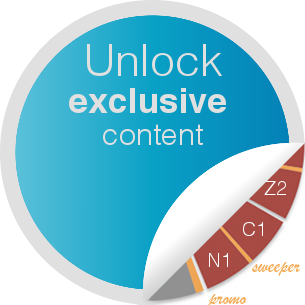Putting your audience first (and not your station or ego) is one of the keys to engaging listeners, broadcast consultant Valerie Geller says.
She flew to London for a 20-minute talk – ‘long’ within Next Radio’s content-snacking format, short for the compelled audience. Even if they were a mere appetizer for Beyond Powerful Radio (and you might have heard some of them before), these storytelling essentials deserve to be highlighted (once again). Why ‘I’ becomes ‘you’, and a ‘beautiful sunset’ becomes a ‘tangerine sky’ in order to make listeners forget about time, and stay tuned longer.
“What pieces of gold are you going to put into that bucket?”

Broadcast consultant Valerie Geller thinks that we should always focus on listener benefits (photo: Thomas Giger)
Reflect daily human life
Valerie Geller believes that powerful radio is basically good storytelling. As radio people, we’re holding up a mirror; reflecting life, like artists. “They observe life, filter what they see through their creative process, and put it back out for other people. This is an art form.” At the same time, she notes that doing it is easier said than done. “It takes courage to create; to put yourself out there. The curse of our business as broadcasters is that the great ones make it look so easy.”
 Be your listener’s friend
Be your listener’s friend
She thinks that radio should inform, inspire, entertain, sometimes persuade, and – most importantly – offer companionship. “If you ever feel alone, and suddenly put your finger on that black box, you’re not alone anymore. There’s music that inspires you, there’s somebody talking to you; connecting you as a member of the human tribe to the community. Connecting audiences is really the gift we give to people.”
Choose & promote stories well
Geller is using a 4-element method for content. The first two parts are:
1. Focus: what do you talk about? In her experience, it works well to concentrate topics around health & safety, money & power, emotion and transformation (helping people to increase their quality of life) as these 4 categories seem to be popular anywhere in the world.
2. Engage: what will your audience receive? “Never ever put anything on the air if you can’t answer the question: why should someone listen to this?” An additional way to engage listeners is to only talk to one individual, and use the word ‘you’ (instead of ‘I’, ‘me’, ‘we’, ‘us’ or our’).
Pre-sells should also focus on listener benefit. Instead of saying: “I’m going to be interviewing Greg Simpson about Canadian Music Week, coming up next”, it’s better to say: “If you’re interested in global music, and feel like winning a trip to Canada, you’re not going to want to miss meeting Greg Simpson, coming up next.” Instead of speaking about what we are giving, we should talk about what listeners are getting. “Imagine that each person listening to you has a bucket. What pieces of gold are you going to put into that bucket?”
“If something is in power, five minutes feel like one”

As long as a topic is compelling, ‘time flies’ and listeners will not notice it or not complain (photo: Thomas Giger)
Present stories consciously & compellingly
The second two parts of her 4-element method are:
3. Opinion & position: what are your own thoughts? While doing a news story requires a neutral position, you always want to think about your personal opinion and position regarding each story, and why others should hear (and care about) this story. “Make it matter.”
4. Storytelling: how do you present it? “You are in the story business. Your job is: ‘once upon a time, in a far off land, there was a princess and a monster – and then, one day…’ The minute your audience goes: ‘and then… what happened next?’, you own them.”
While broadcasters are used to attribution (telling who said something) at the top, her advice is to turn it around: put the ‘what’ before the ‘who’. So instead of saying: “According to a press release from the Museum of Modern Arts, the Picasso will be here through Thursday”, you want to say: “If you haven’t seen the Picasso, you only have till Thursday. That’s according to…”
 Paint pictures, vibrate emotion
Paint pictures, vibrate emotion
Valerie Geller reminds every storyteller to utilize the fact that men are visual, and women are emotional. MRI scans have shown that a male brain lights up when it’s given a picture (so instead of: “it’s a beautiful sunset”, rather say: “it’s a tangerine sky”) and that a female brain, while it appreciates an image, really responds when it’s triggered by feelings. “If you touch her heart, her learning centers will open up.”
Improve your unnatural language
We should therefore learn to speak the “foreign language” of the opposite gender – males will benefit from sharing more emotion, females will benefit from using more visuals. “If you do this, you will instantly become a more powerful broadcaster tomorrow.” Before putting a story on air, you want to think about how you would tell it to a friend (“don’t read”), and motivate yourself to be outstanding. “How would you tell this story if you wanted a new job and needed to put this on a demo?” One way to recognize a great story is that duration is never an issue. “There’s no monitor to time in radio. If something is out of power, one minute feels like five. If something is in power, five minutes feel like one.” Her 20 minutes felt like 2.





Thank you for your suggestion, Nathan!
It’s a very good one, and it can be a useful resource for radio management, so we’ve added it to the list for future articles & resources. Thanks again for your input!
Cheers,
Thomas
Please post a performance evaluation guide or template for music program radio presenters, which could be used for their salary increases, bonuses and other benefits. Of course, also for termination of employment due to poor performance.
Pleasure, Vladimir!
Good luck with your content production, enjoy creating!
Thomas
Amazing!
Thank you, Thomas, to post this great article of Valerie Geller. By reading, this gives me even more confidence that I’m on the righ path writting and producing content.
Greetings from Ecuador ;-)